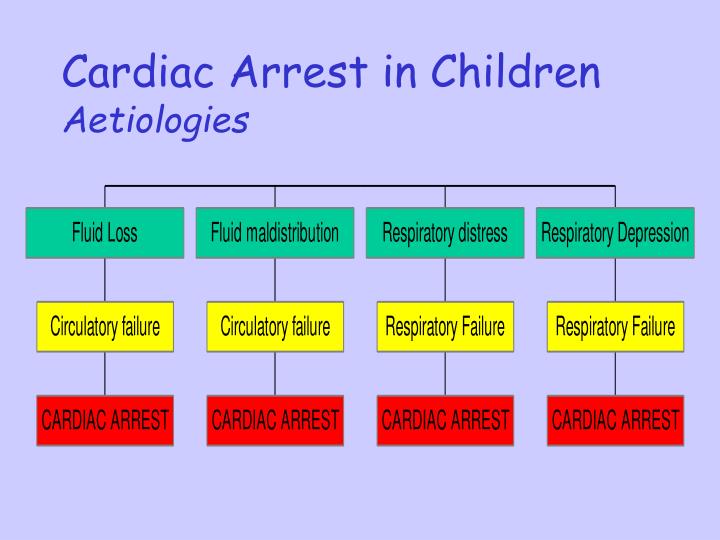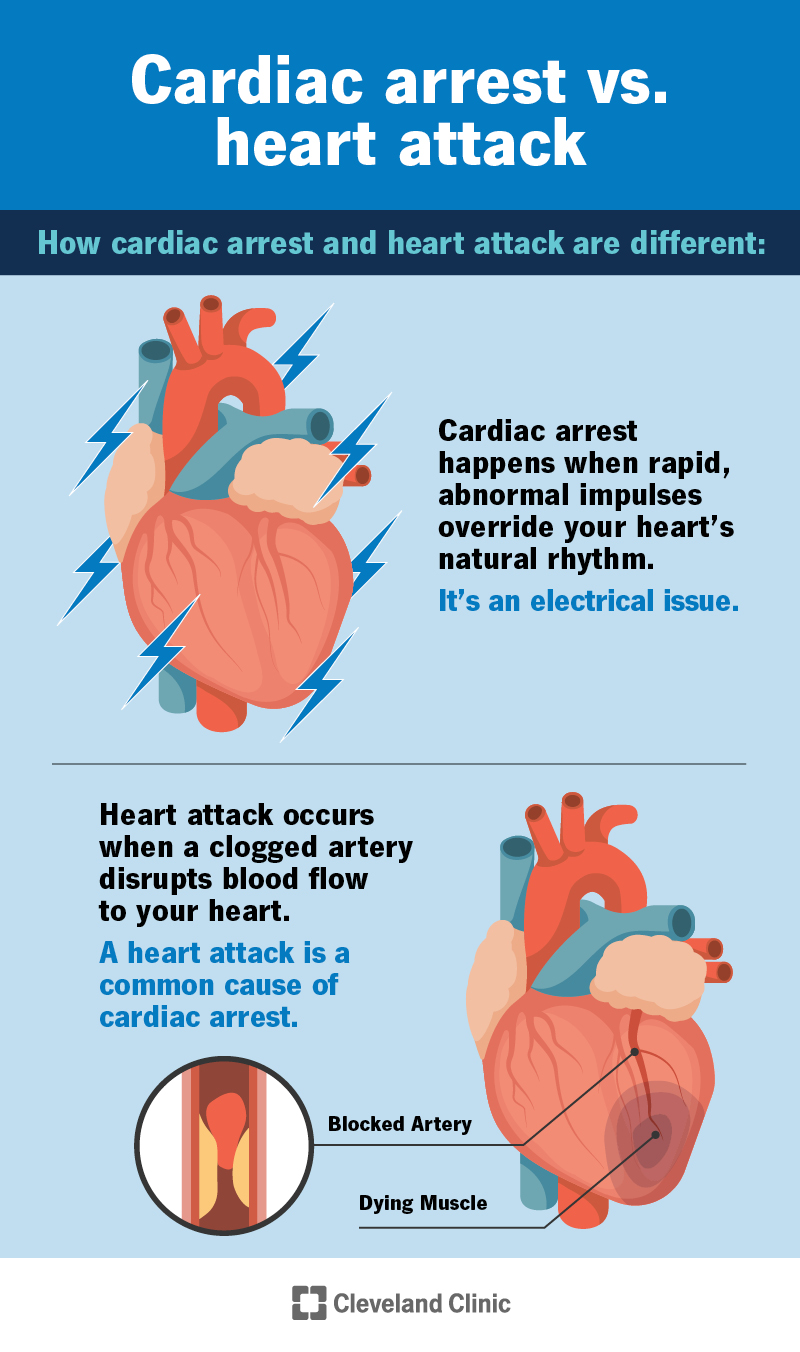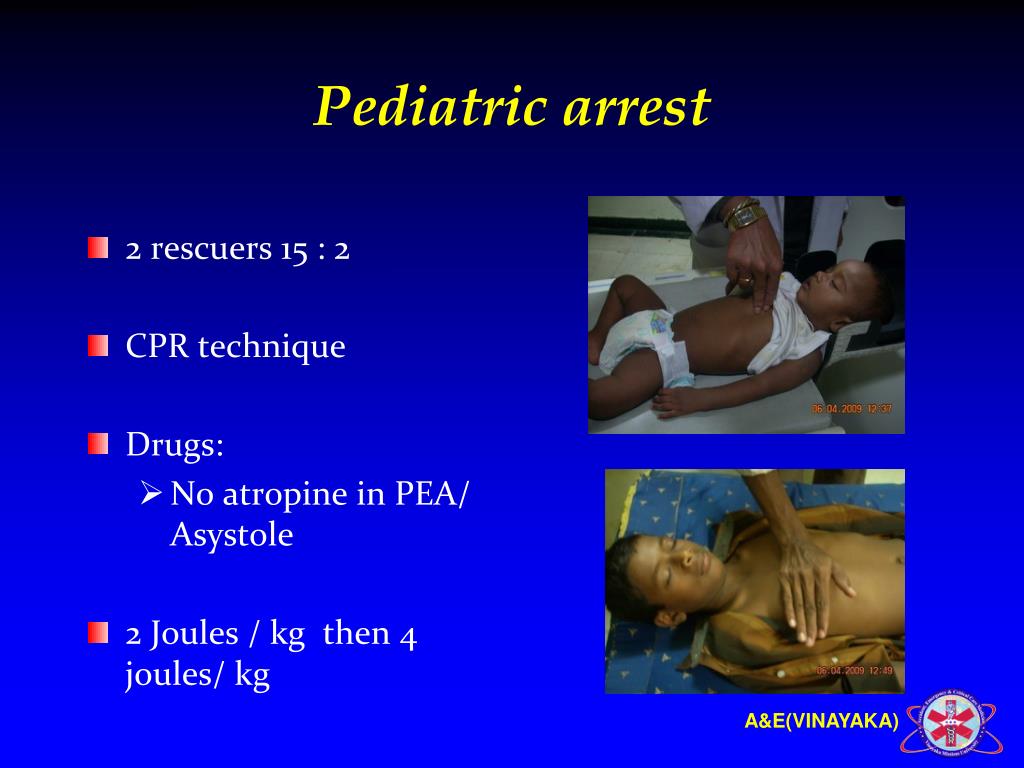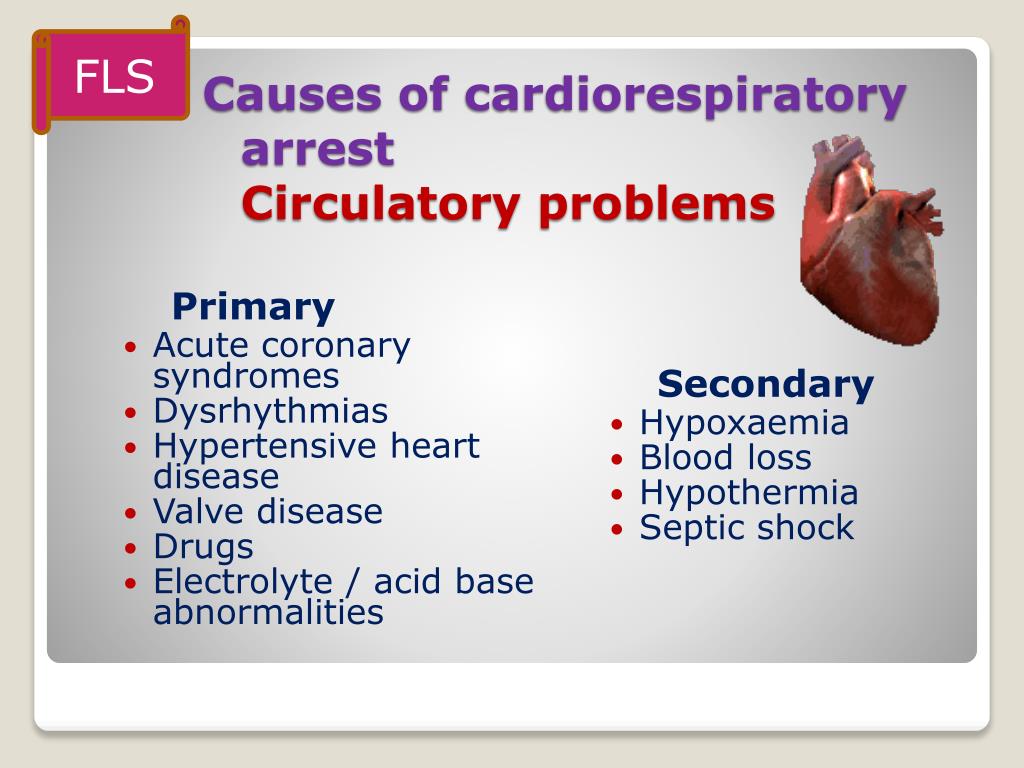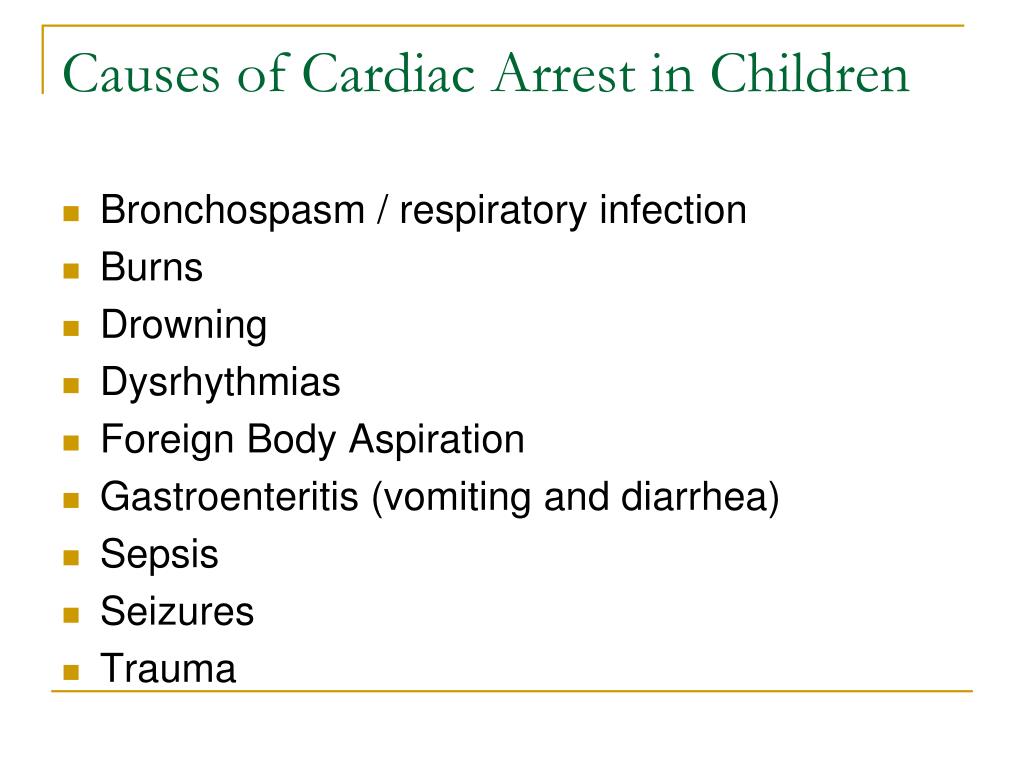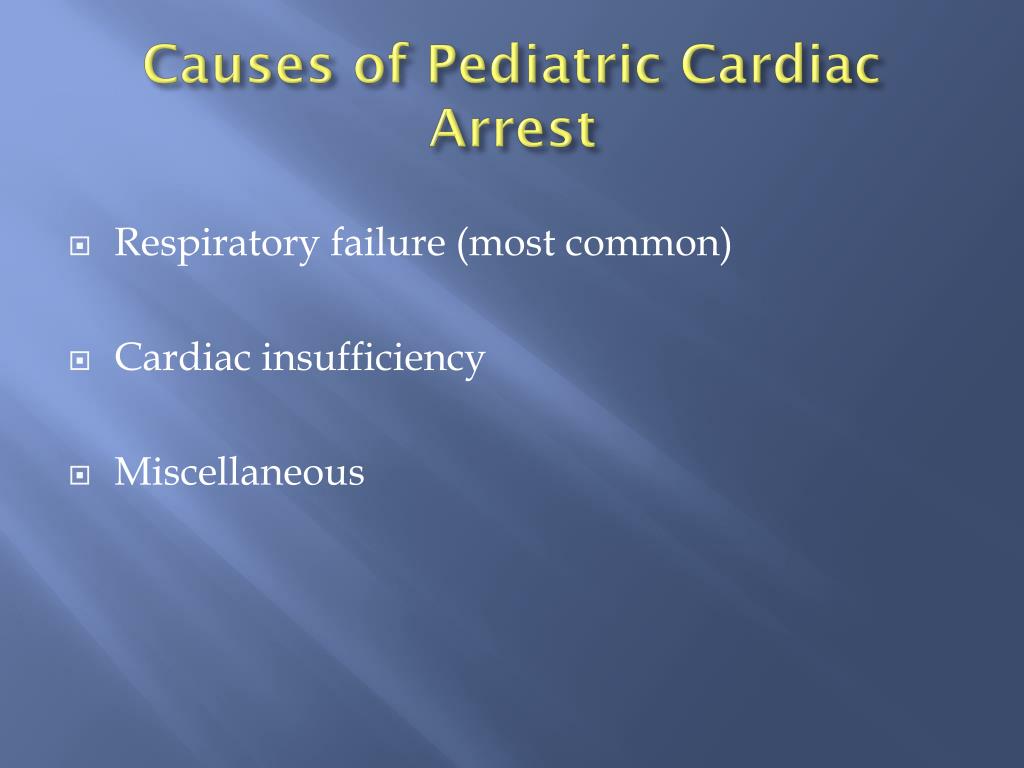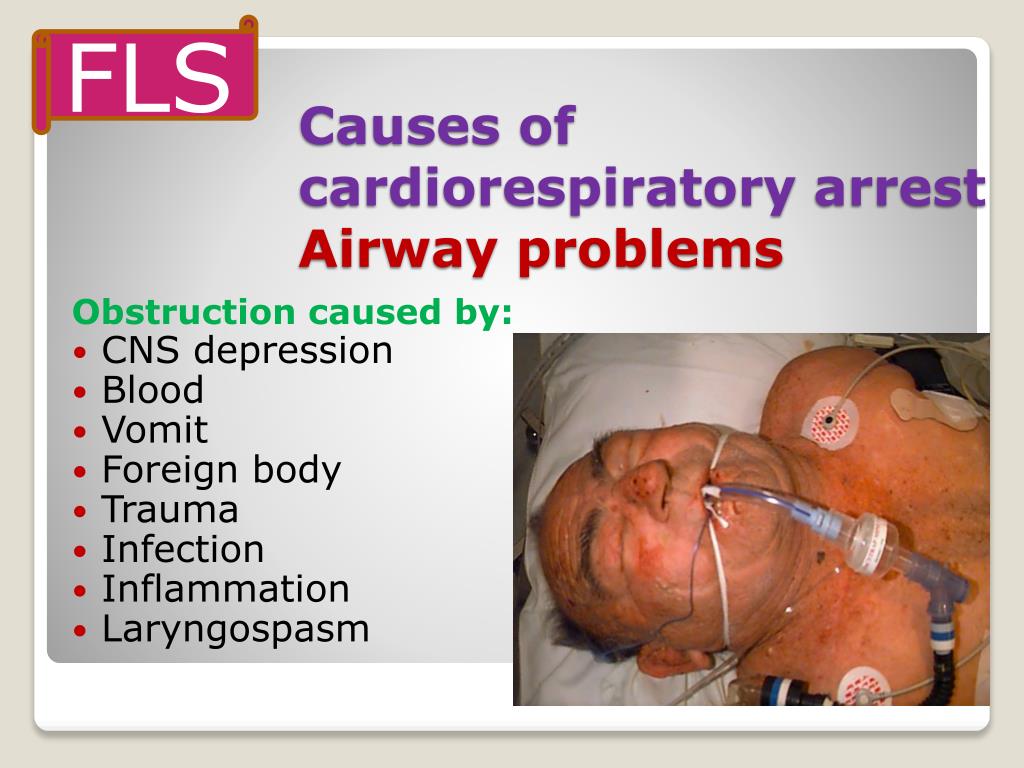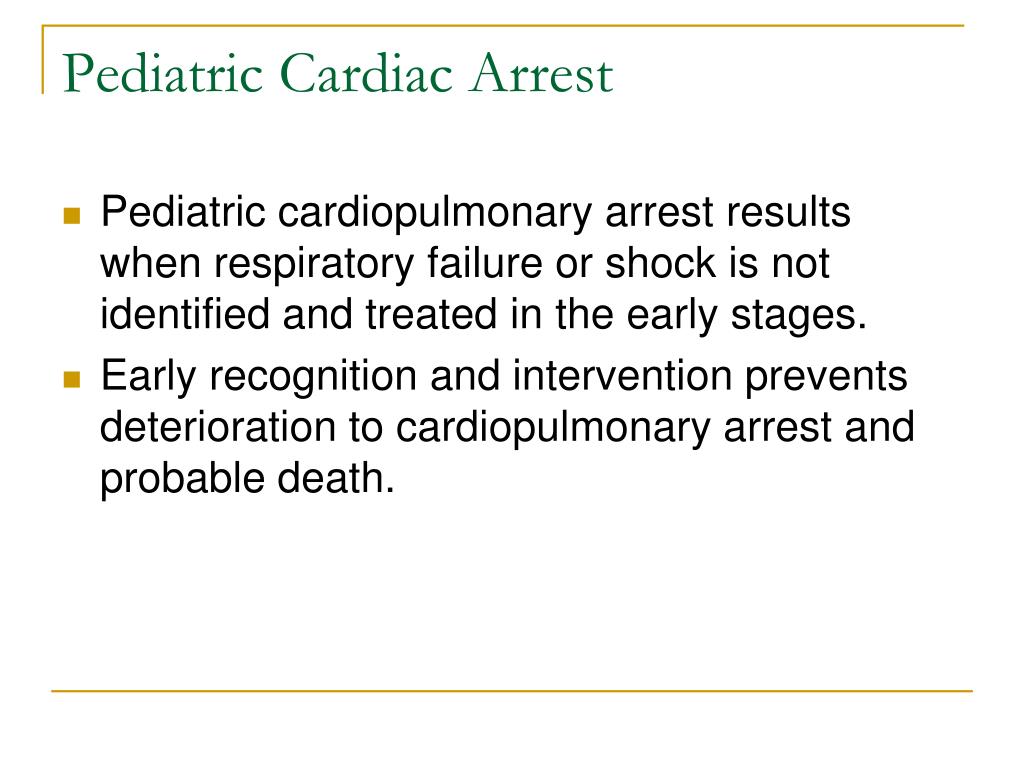Cardiac Arrest In Children Is Usually Caused By - Clinicians with pals certification learn to recognize the three most common causes of cardiac arrest in children, which include trauma,. Sudden cardiac arrest is usually caused by ventricular fibrillation (vf), an abnormality in the heart's electrical system. Pediatric cardiac arrest can occur due to a variety of factors, including respiratory failure, trauma, and underlying heart conditions.
Sudden cardiac arrest is usually caused by ventricular fibrillation (vf), an abnormality in the heart's electrical system. Pediatric cardiac arrest can occur due to a variety of factors, including respiratory failure, trauma, and underlying heart conditions. Clinicians with pals certification learn to recognize the three most common causes of cardiac arrest in children, which include trauma,.
Pediatric cardiac arrest can occur due to a variety of factors, including respiratory failure, trauma, and underlying heart conditions. Sudden cardiac arrest is usually caused by ventricular fibrillation (vf), an abnormality in the heart's electrical system. Clinicians with pals certification learn to recognize the three most common causes of cardiac arrest in children, which include trauma,.
PPT Recognition of the seriously ill child PowerPoint Presentation
Sudden cardiac arrest is usually caused by ventricular fibrillation (vf), an abnormality in the heart's electrical system. Pediatric cardiac arrest can occur due to a variety of factors, including respiratory failure, trauma, and underlying heart conditions. Clinicians with pals certification learn to recognize the three most common causes of cardiac arrest in children, which include trauma,.
Sudden Cardiac Arrest Causes & Symptoms
Pediatric cardiac arrest can occur due to a variety of factors, including respiratory failure, trauma, and underlying heart conditions. Sudden cardiac arrest is usually caused by ventricular fibrillation (vf), an abnormality in the heart's electrical system. Clinicians with pals certification learn to recognize the three most common causes of cardiac arrest in children, which include trauma,.
PPT CARDIAC ARREST PowerPoint Presentation, free download ID5577198
Pediatric cardiac arrest can occur due to a variety of factors, including respiratory failure, trauma, and underlying heart conditions. Sudden cardiac arrest is usually caused by ventricular fibrillation (vf), an abnormality in the heart's electrical system. Clinicians with pals certification learn to recognize the three most common causes of cardiac arrest in children, which include trauma,.
PPT ABCDE ,causes and Prevention Cardiac Arrest PowerPoint
Sudden cardiac arrest is usually caused by ventricular fibrillation (vf), an abnormality in the heart's electrical system. Pediatric cardiac arrest can occur due to a variety of factors, including respiratory failure, trauma, and underlying heart conditions. Clinicians with pals certification learn to recognize the three most common causes of cardiac arrest in children, which include trauma,.
PPT Pediatric Advanced Life Support PowerPoint Presentation, free
Sudden cardiac arrest is usually caused by ventricular fibrillation (vf), an abnormality in the heart's electrical system. Pediatric cardiac arrest can occur due to a variety of factors, including respiratory failure, trauma, and underlying heart conditions. Clinicians with pals certification learn to recognize the three most common causes of cardiac arrest in children, which include trauma,.
PPT Vasopressin Use in Pediatric cardiac arrest PowerPoint
Clinicians with pals certification learn to recognize the three most common causes of cardiac arrest in children, which include trauma,. Pediatric cardiac arrest can occur due to a variety of factors, including respiratory failure, trauma, and underlying heart conditions. Sudden cardiac arrest is usually caused by ventricular fibrillation (vf), an abnormality in the heart's electrical system.
Cardiac Arrest Learning all the Signs, Symptoms and More. REPC
Clinicians with pals certification learn to recognize the three most common causes of cardiac arrest in children, which include trauma,. Sudden cardiac arrest is usually caused by ventricular fibrillation (vf), an abnormality in the heart's electrical system. Pediatric cardiac arrest can occur due to a variety of factors, including respiratory failure, trauma, and underlying heart conditions.
PPT ABCDE ,causes and Prevention Cardiac Arrest PowerPoint
Pediatric cardiac arrest can occur due to a variety of factors, including respiratory failure, trauma, and underlying heart conditions. Clinicians with pals certification learn to recognize the three most common causes of cardiac arrest in children, which include trauma,. Sudden cardiac arrest is usually caused by ventricular fibrillation (vf), an abnormality in the heart's electrical system.
PPT Pediatric Advanced Life Support PowerPoint Presentation, free
Clinicians with pals certification learn to recognize the three most common causes of cardiac arrest in children, which include trauma,. Sudden cardiac arrest is usually caused by ventricular fibrillation (vf), an abnormality in the heart's electrical system. Pediatric cardiac arrest can occur due to a variety of factors, including respiratory failure, trauma, and underlying heart conditions.
Cardiac Arrest in Children Chapter 5 Part 1 (PALS Training) YouTube
Pediatric cardiac arrest can occur due to a variety of factors, including respiratory failure, trauma, and underlying heart conditions. Clinicians with pals certification learn to recognize the three most common causes of cardiac arrest in children, which include trauma,. Sudden cardiac arrest is usually caused by ventricular fibrillation (vf), an abnormality in the heart's electrical system.
Sudden Cardiac Arrest Is Usually Caused By Ventricular Fibrillation (Vf), An Abnormality In The Heart's Electrical System.
Clinicians with pals certification learn to recognize the three most common causes of cardiac arrest in children, which include trauma,. Pediatric cardiac arrest can occur due to a variety of factors, including respiratory failure, trauma, and underlying heart conditions.
